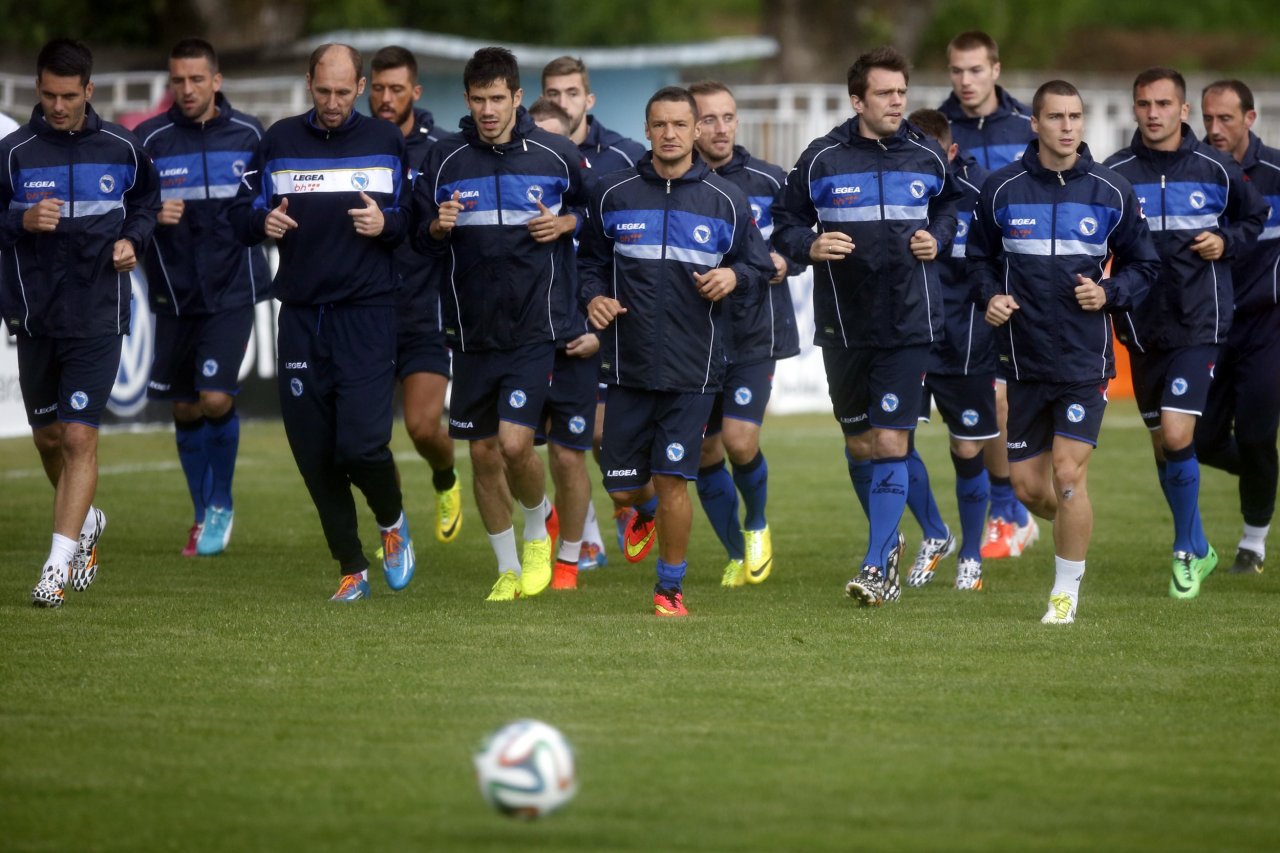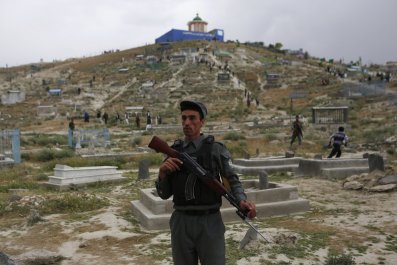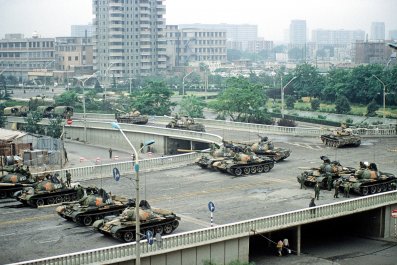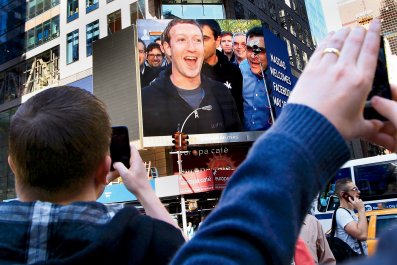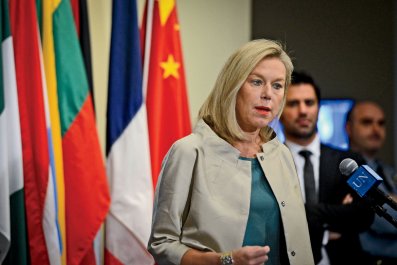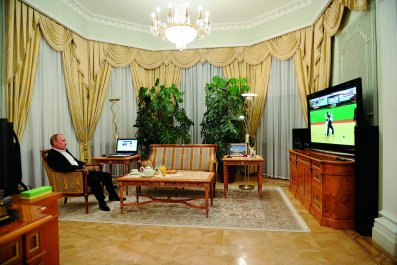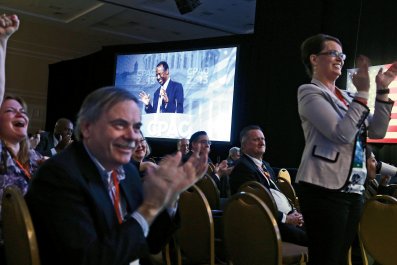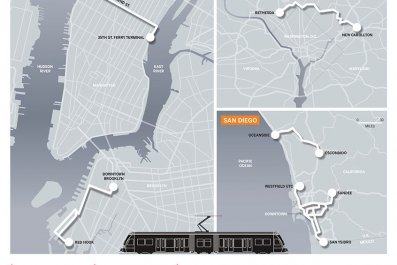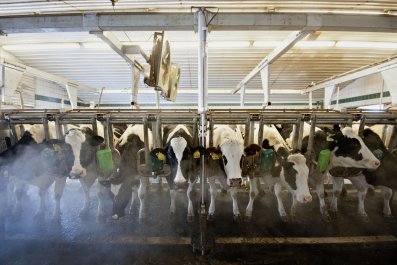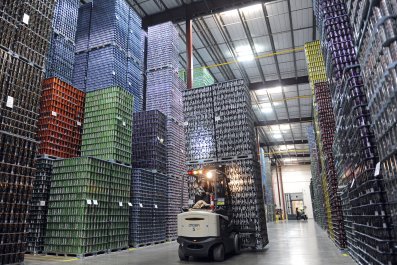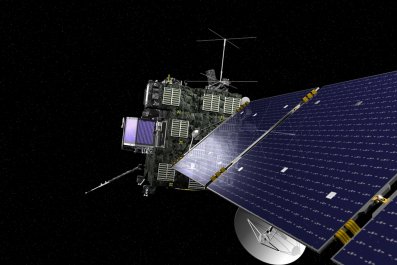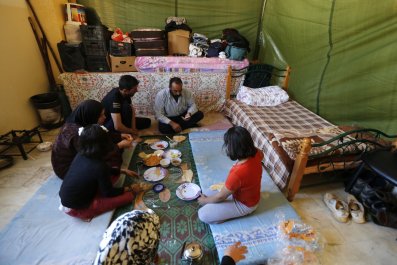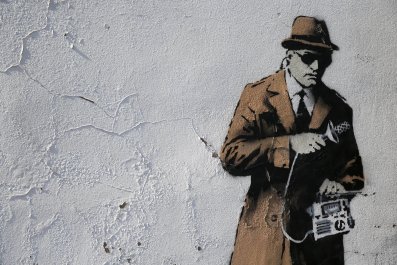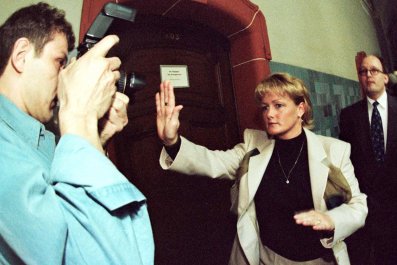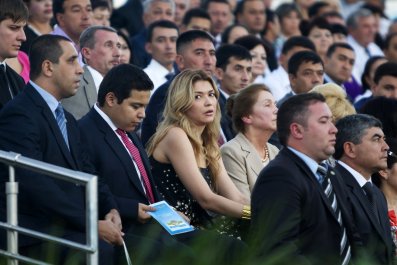Nothing is ever simple in Bosnia. Visitors to this beautiful country will hear that phrase – or a variation on it – time after time, accompanied by a heavy sigh or rueful chuckle.
Now, as Bosnia-Herzegovina prepares to take part in its first World Cup finals, there's a temptation to imagine that soccer might succeed where world leaders have failed and bring some sort of stability to a country ravaged by war, bruised by riots and battered by fatal flooding.
But that is not how it looks from the east side of the Old Bridge in Mostar. Far from being a unifying force or source of joy, Bosnia's World Cup qualification has served to emphasise the deep divisions among the country's three main ethnic groups.
Here in southern Bosnia, Sabrija Selimovic entertains visitors in the bar which bears his nickname, Zika. This area suffered some of the heaviest destruction of the entire conflict in the 1990s, as Croat, Bosniak (Muslim) and Serb fought ferociously. Both the Catholic and Orthodox cathedrals were reduced to rubble – and so, infamously, was the Old Bridge, one of the finest feats of Islamic architecture in the entire Balkans.
Zika serves drinks and also takes visitors on walking tours. "I show them the former front line and go to a cemetery where many of my friends are buried," he says. "I was only 17 during the siege of Mostar. Half of my class from high school died and I was wounded twice myself."
His story sounds uncannily similar to some of the tales that Bosnia's talented World Cup footballers tell. Star striker Edin Dzeko, who plays for Manchester City, had a lucky escape when his mother refused to let him go to a Sarajevo playground where, later the same day, children died in an explosion. Fellow forward Vedad Ibisevic had to flee as his home village went up in flames – a victim of "ethnic cleansing." Midfielder Haris Medunjanin managed to escape to the Netherlands, but his father died in the conflict.
Zika is an enthusiastic supporter of all these players – but following the national team is not without its hazards. The majority of the squad are Bosniaks. Ethnic-Serbs and ethnic-Croats tend to play for Serbia and Croatia respectively – and supporters in Bosnia are split on similar lines. "If I went into the west part of Mostar wearing a Bosnia jersey, hooligans would attack me," says Zika. "It would be the same in eastern Bosnia where the ethnic-Serbs live. The World Cup should bring people together – but the nationalists are still very strong in this country."
Zika had been hoping to set up public viewings of Bosnia's matches on big screens in Mostar. But, he says, the tensions between the ethnic groups have made it impossible. Still, the stereotypes do not always hold true. The main cheerleader for the national side's historic World Cup qualifying effort was in fact an ethnic-Serb.
The rasping delivery of TV commentator Marjan Mijajlovic accompanied every goal in the team's spectacular campaign, as Bosnia scored 30 times in just 10 matches. He happily claims the credit for coining the side's nickname – the Dragons – as well as handles for individual players. The prolific Dzeko is the Diamond. "I love Bosnian players," says Marjan. "I think sometimes they hear my voice in their heads when they play."
Everybody in the capital, Sarajevo, heard Marjan's voice on New Year's Eve, when his commentary proclaiming Bosnia's World Cup qualification was replayed as the midnight chimes rang out.
Those celebrations followed wild scenes last October as the national side returned victorious from their final qualification match. Hundreds of thousands of people welcomed them home. Now, as Bosnia prepares for its opening match against mighty Argentina, there are many who insist that football may be the best way to rekindle the spirit of tolerance for which Bosnia once was famous.
Ivica Osim is certainly among the best-placed to judge. He was the last person to serve as head coach of Yugoslavia, guiding them to the quarter finals of the 1990 World Cup before quitting two years later as his hometown, Sarajevo, came under siege.
Three years ago, he pulled Bosnia back from the brink of expulsion from international competition, as ethnic elements squabbled within the football (as soccer is called here) federation. Osim – who has always rejected ethnic labelling himself – whipped the organisation back into unified shape, setting the scene for World Cup qualification.
"The only team which works is the Bosnian national football team – which is in effect Bosnia's brand," says Osim.
"World Cup qualification has brought an enormous amount of good. Every win or success brings us a lot of joy, especially for the people who left because of the war. The only thing to reunite us is football – it has given us a spirit we haven't known until now." Osim even suggests that World Cup qualification has eased political tensions – despite the anti-government riots that erupted across the country in February and the devastating floods last month, which added to the sense of a country still under siege.
Yet when the tournament starts, Sarajevo is at least one place in Bosnia sure to experience football fever. The World Cup trophy has already made a tantalising visit to the capital, patriotic stickers are on sale everywhere and big screens have been erected in the city centre.
No one expects Bosnia to advance far in the tournament. But football is often called a "funny old game." Dzeko and his team mates have already made history. All they have to do now is confound history.


